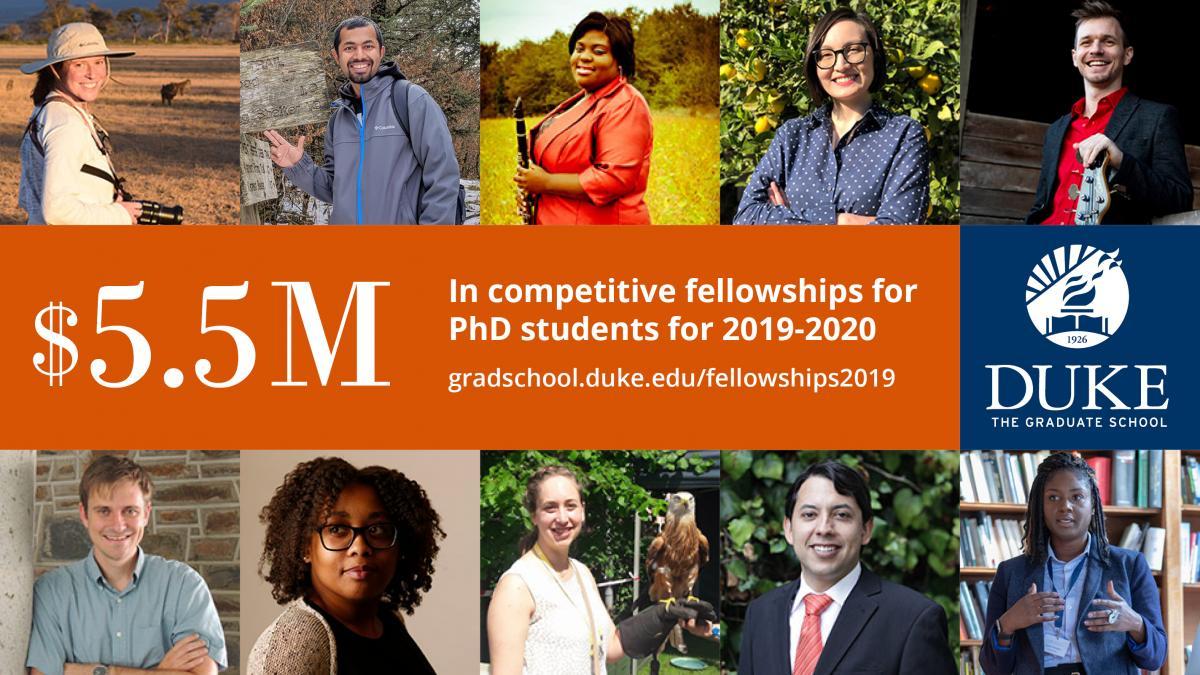
Fellowship Snapshots 2019

For the 2019-2020 academic year, the Duke Graduate school awarded 356 competitive fellowships to incoming and continuing Ph.D. students, totaling more than $5.5 million. Here is a look at some of the recipients and their research:
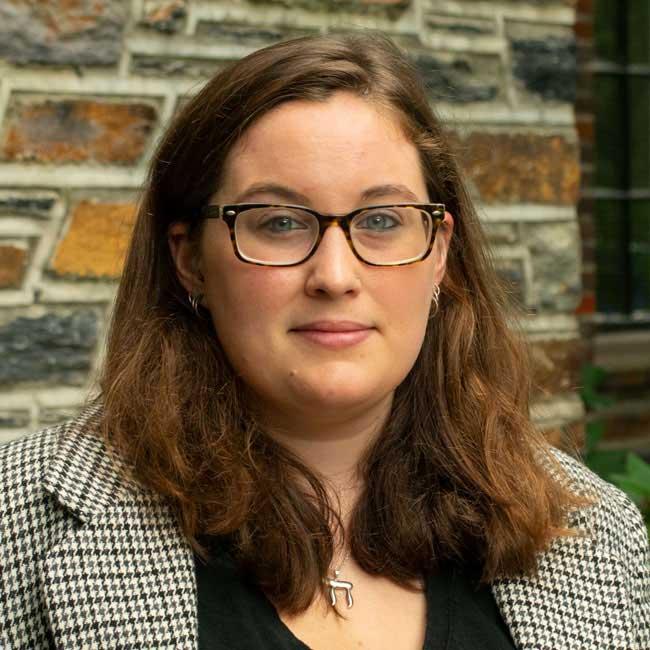
Kaylee Alexander
Art, Art History and Visual Studies
James B. Duke International Research Travel Fellowship
My dissertation studies the market for funerary monuments in Paris following the Napoleonic cemetery reforms of 1804, which instituted a highly regulated system of burial throughout the French Empire. While past studies of French cemeteries have been primarily concerned with works designed by architects and sculptors (or the tombs of notable figures), this project considers the role and reputation of marbriers (stonecutters) as the primary producers of funerary monuments. Rather than being subordinate to the architect by simply executing his designs, the marbrier played a central and autonomous role in the creation of a visual culture of commemoration in the 19th century. Offering clients a multitude of options for customization at nearly any price point, the marbriers promoted individuality and social distinction on a larger scale than was typical of architects and sculptors. Using data-driven research methods to compensate for gaps in the material record, this dissertation calls attention to the various survival biases that have complicated material and visual cultural studies of French cemeteries, and seeks to further develop our understanding of memorial practices in the 19th century as they affected the larger public of Paris.

Biostatistics
My research focuses on building models that can help identify biomarkers in rare forms of cancer. This research is important as it not only helps slow the progression of the disease but also helps improve patient outcomes. More specifically, I apply these models to Synovial Sarcoma, Dedifferentiated Liposarcoma (DDLPS) and Leiomyosarcoma (LMS).
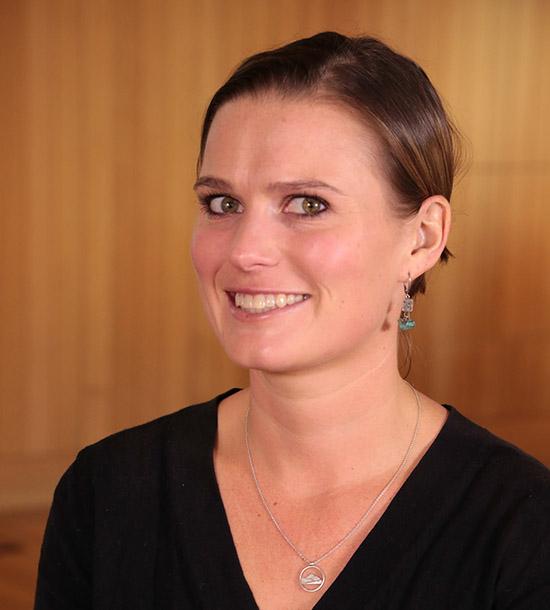
Marine Science and Conservation
International Dissertation Research Travel Award
James B. Duke International Research Travel Fellowship
The pursuit of human wellbeing is one of the primary goals for society and sustainable development. As governments across the world plan to increase the size and number of protected areas to halt biodiversity loss, they have also committed to cutting poverty in half by 2030 under the Sustainable Development Goals. While the importance and complexity of the relationships between the environment and human wellbeing is widely recognized, the relationship between the two remains poorly understood.
My research is examining how small-scale fisher’s wellbeing, with a particular focus on relational values and place identity, is affected by the implementation of Marine Protected Areas (MPA). I am working to better understand how MPAs transform one’s relationship with the marine environment, with specific livelihood resources, and across human communities in Tanzania. With the James B. Duke International Research Fellowship, I am conducting semi-structured interviews with a number of communities in, and around, Tanzanian MPAs.
Ashley Blawas
Marine Science and Conservation
Dissertation Research Travel Award: International
My research investigates cardiorespiratory coupling in bottlenose dolphins and its effect on diving ability. In mammals, the lungs and the heart work together to accomplish the important physiological process of bringing oxygen from the air to the cells and removing carbon dioxide from the cells to the air. For marine mammals that are required to hold their breath while they forage underwater, it is beneficial to complete this task quickly and efficiently so that the animal can maximize time spent underwater and have sufficient oxygen stores to supply to its cells during a dive. Coupling breathing with changes in heart rate is thought to improve the efficiency of oxygen delivery to the blood and save energy, improving management of oxygen stores. I am interested in quantifying the coupling of the lungs and the heart to be able to estimate the physiological consequences of behavioral disturbance to wild populations of bottlenose dolphins. When a diving marine mammal is exposed anthropogenic disturbances, such as noise pollution or ship presence, it may change its behavior to avoid the noise source or the ship. This change in behavior can result in changes in physiological rates like breathing rate or heart rate. By understanding cardiorespiratory coupling we can better model the cumulative effects of changes in physiology and the ways in which those changes may impede normal diving behavior. This work aims to inform decision-makers about potential thresholds of disturbance.
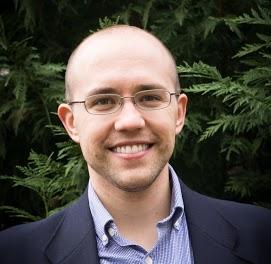
Brad Boswell
Religious Studies
Bass Instructional Fellowship: Digital Education Fellowship
As a Bass Digital Education Fellow I will be working with Professor Martin Eisner (Romance Studies) in Spring 2020 on digital projects related to Dante Alighieri and the Divine Comedy. One of the main focuses will be on a project entitled "Dante's Library" (https://sites.duke.edu/danteslibrary/) which aims to digitally assemble and reconstruct the texts that Dante would have read and studied, as well as other physical and material features of his life that would have played a formative role in his poetic imagination.
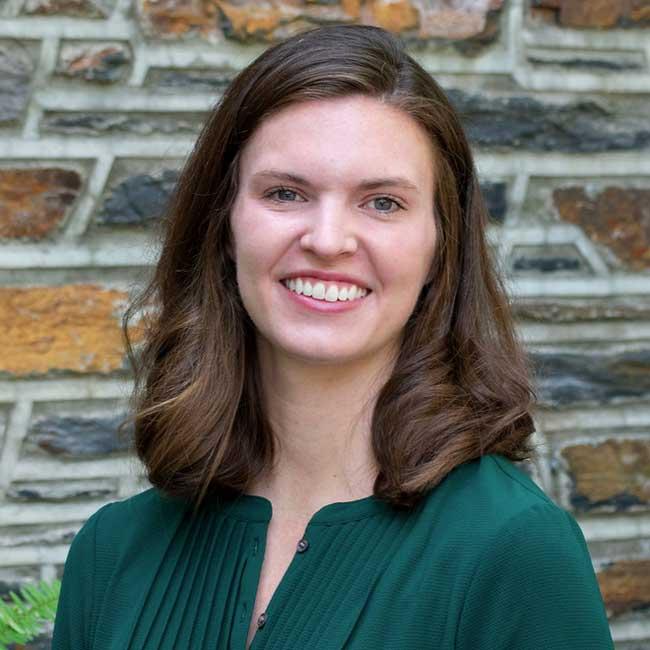
Hannah Brown
Molecular Genetics and Microbiology
Jo Rae Wright Fellowship for Outstanding Women in Science
In order to survive and cause disease, microbial pathogens of all kinds must adapt to the specific conditions of the infected host. These adaptations occur in response to increased temperature, the host immune system, and alterations in the extracellular acid-base balance or “pH”. The pH of the human host is slightly alkaline, and most pathogens that are found ubiquitously in the environment generally thrive at a more acidic pH. Therefore, pathogenic microbes must be able to effectively adapt to changes in the surrounding pH when encountering the human host.
Micro-organisms in the Fungal kingdom are important and emerging causes of disease and death, especially in highly immunosuppressed patients. Fungal pathogens are especially difficult to treat, given the surprising similarity of cellular functions and physiology between these eukaryotic microbes and the human host. However, these organisms use a fungal-specific cellular process, the Rim/Pal signal transduction pathway, to sense and respond to changes in extracellular pH. Mutant fungal strains with defects in this pathway are unable to survive at the alkaline pH encountered in the infected host.
My research aims to understand this fungal cell pathway and "pH-sensing" in the context of the opportunistic fungal pathogen and genetically tractable model: Cryptococcus neoformans. Elucidation of this fungal process in a pathogenic model will help uncover novel and specific ways to treat infections due to fungal pathogens.
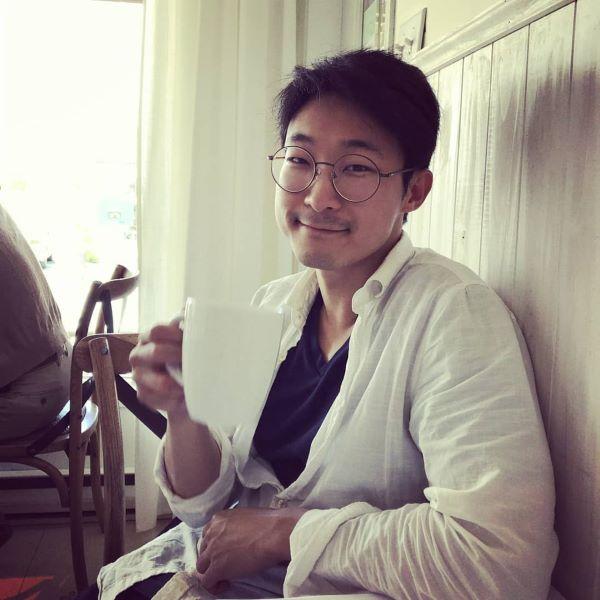
Yoon Woo Byun
Biomedical Engineering
Katherine Goodman Stern Fellowship
Bass Instructional Fellowship: Teaching Assistant
My studies in Duke are three-fold: (1) processing of information such as observed movements and reward in motor neurons of Macaque monkeys, (2) Bayesian statistical modeling of the mapping between neural activity and movements in individual and networks of neurons; (3) implementation and experiments in multiple frameworks of Brain-to-Machine Interface (BMI). My main project, the first study, is motivated from the fact that motor system and social interaction are tightly related. Movements are crucial in understanding and learning the intention of others. Interestingly, mirror neurons respond to both self-initiated movements and movements observed from the world. My project explores how individual neurons process two different information types, self-executed and observed movements, simultaneously in order to further understand the role and information structure of motor neurons.

Devon Carter
Music
University Scholars Fellowship
James B. Duke Fellowship
My current area of interest is the history of opera, especially later Romantic and early Modernist opera in the German countries, France, Britain, and the United States. Threads within that interest include how (and whether) the genre of opera changed and fragmented over this period; how the rise of operetta, light opera, and the musical changed (and defined) "serious opera;" how and by whom these genres were sorted into "high" and "low" art forms, and the class/gender/racial/social differences they exploited among or imposed on their audiences; and the relation of opera and other forms of theater music to politics and music as a whole during the period of invention of "classical music" and establishment of the current Western musical canon.

Jieun Cho
Cultural Anthropology
James B. Duke International Research Travel Fellowship
What is normal life when living continues amidst low-level radiation? In post-meltdown Japan, the effort at constructing normal life continues to raise questions about how, and in what terms, this may be possible when the effects of radioactivity from the Fukushima nuclear disaster remain uncertain. Despite concerns for health amidst a raised level of permissible airborne radiation (for re-building the region), many families have remained in, or returned to, their less-than-ideal neighborhoods in Fukushima for reasons like the presence of jobs, aging parents, and family farms. Does this mean that they have compromised their desire to live in a safe environment or, that they now accept the scientifically informed proposition that low-dose radiation does not induce health effects? Or, rather, are such families between these two extremes, trying to build a sense of normalcy while knowing well that they are doing so in a non-normal environment? In the wake of a chronic nuclear disaster, my project examines what kind of life parents are making through their everyday efforts to raise healthy children in the cities of Fukushima Prefecture located on the edges of clearly defined disaster-affected zones. The research on such families in this area will provide a microcosm for examining the dynamics through which “life” is being made in post-nuclear Japan, and broadly, for a future where reproductivity will face increasing environmental uncertainty.
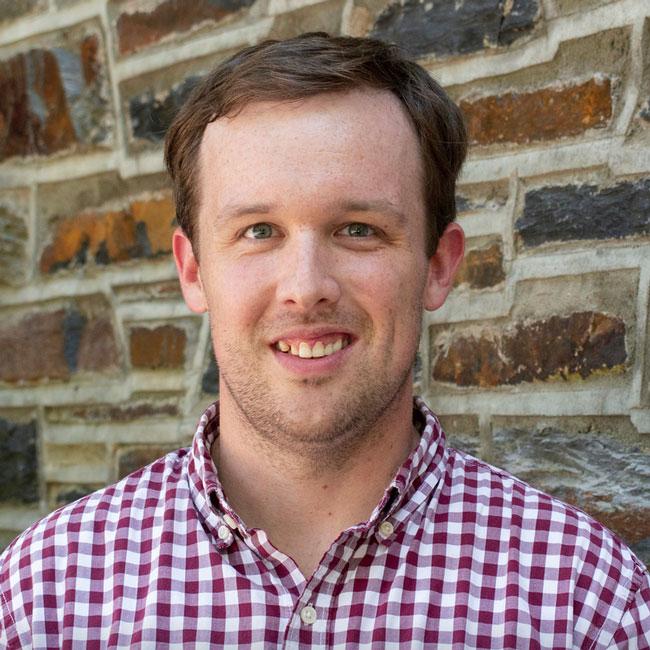
Jonathan Churchill
Music
Dissertation Travel Research Award: International
I currently research musical rupture in the British 20th century, especially as it relates to the works of Ralph Vaughan Williams. To that end, my dissertation is titled "Rupture as Rhetoric in the Symphonies of Ralph Vaughan Williams." In it, I interrogate the role of various "nonlinear" elements—harmonic stasis, abrupt pauses, thematic disordering, etc.—in crafting a unique symphonic rhetoric at odds with previous conceptions, which often focused on continuity. This emphasis on rupture links Vaughan Williams more diverse musical currents than previously understood, and has potential to illuminate an unexplored web of connections founded on composers' employment of nonlinearity.
With the International Dissertation Travel Research Award, I will travel to London to examine Vaughan Williams's working materials at the British Library. This examination will allow me to ascertain the place of rupture in his compositional process, casting new light on the genesis of internationally acclaimed works and the relative importance of rupture in 20th-century symphonic composition.

Ajenai Clemmons
Public Policy Studies
Aleane Webb Dissertation Research Fellowship
My dissertation compares data from in-depth interviews of those among the most heavily policed in their cities: young Black men in East Durham, NC and young Muslim men of Bangladeshi descent in East London. My broad research questions explore what these civilians want from police in order to feel safe, how they judge police performance, and what their actions (or non-actions) are if they feel that police have not met their expectations.

Ashley Colemon
Molecular Cancer Biology
I have always been fascinated by the molecular mechanisms of disease. During my undergraduate and master’s matriculation, I realized my fascination with the many aspects of cancer biology from mechanisms of tumorigenesis to the role of the microenvironment in supporting metastatic behaviors. As I start my matriculation at Duke, I hope to leverage these interests by not only seeking to understand how different aspects of cancer arise and are facilitated, but also using this knowledge to identify potential points for therapeutic intervention.

Molly Copeland
Sociology
Katherine Goodman Stern Fellowship
My research investigates how social relationships help or harm health. Substantively, my dissertation uses statistical methods and network analysis to investigate how patterns of friendship in adolescent peer networks predict depression and self-harm. Thus far, I find that different types of integration, such as connections among tight-knit friend groups or being high status in the network overall, present different risks and benefits to mental health for young women and men, depending on friends’ mental health and behavior. This work indicates the importance of considering social structure, social tie content, and contextual features when studying the powerful ways connections with others relate to mental health.

Liz Crisenbery
Music
Graduate School Administrative Internship
I am a Ph.D. candidate in musicology who studies early 20th-century Italian opera, exploring the intersection of gender, politics, and music. My dissertation examines masculine identities of fascist composers and reception of their operas during the height of Italian fascism. Other research interests include digital humanities, opera and media, and riot grrrl.

Sarah Cunningham
Genetics and Genomics
Bass Instructional Fellowship: Teaching Assistant
Preterm birth is caused by both environmental influences like maternal stress of infection as well as the genetics of the mother. I study both the effects of maternal stress on the fetus as well as the genetics of the mother that contributes to babies being born too early.

Richard Doty
Biostatistics
My previous research involved developing new algorithms and techniques for quickly and accurately segmenting images of microvessel networks. I worked on both the back-end analysis code and the front-end graphical user interface. I also worked on other aspects of image analysis including simple simulations, 3D representations of tissue from a set of 2D images, and colorimetric analysis. I have also worked on analyzing data in the National Trauma Data Bank. I hope to study machine learning techniques and their applications to medical image and genomic data.
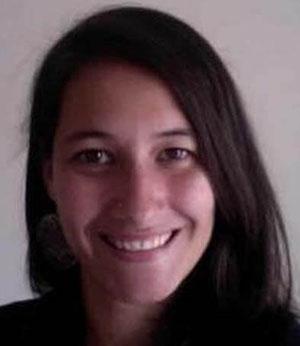
Anna Dowell
Cultural Anthropology
Katherine Goodman Stern Fellowship
My dissertation explores practices of and aspirations to national belonging among Evangelical Egyptians, converts to a distinctively Euro-American form of Protestant Christianity in a nation where the majority of people are either Sunni Muslim or part of the national Coptic Orthodox Church. Based on archival research, textual and media analysis, person-centered interviews, and participant observation, my work attempts to trace the way that discourses and practices of love for and belonging in the nation of Egypt were and are constructed through distinctively Evangelical technologies of prayer, service, corporate worship, and everyday piety. In the wake of the January 25th uprisings - internationally known as part of the wider 'Arab Spring' - Evangelical Egyptians were attempting to 'bring the church into the street' and engage with a wider Egyptian public, and these attempts were imbued with the language and urgency of revolution, crisis, and activism that were re-shaping Egypt's socio-political landscape. This research aims to bring timely and productive debates in the anthropology of religion to bear on the shape of global evangelicalism in the Global South as a key force shaping politics and society. In an age of transnational religion, global capitalism, and mass-mediated lives, our understandings of religions must account not just for how they travel but also how they touch down in local places, national politics and everyday lives.
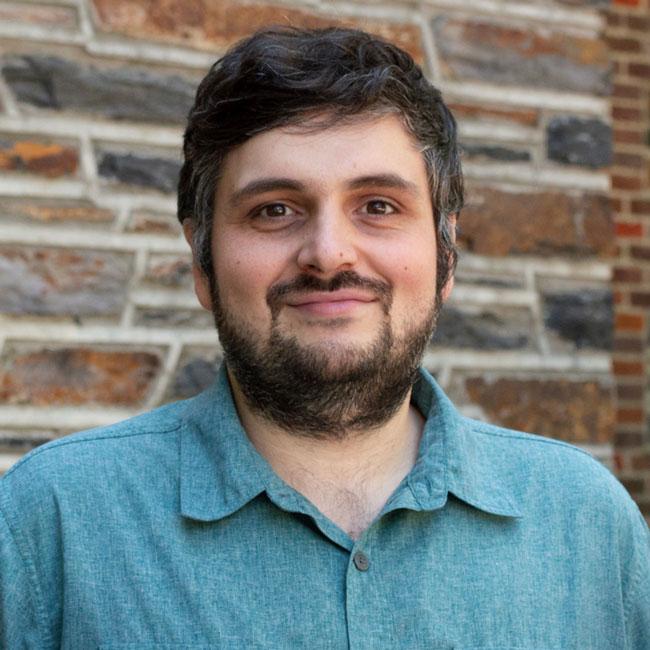
David Dulceany
Romance Studies
Bass Instructional Fellowship: Instructor of Record
Bass Instructional Fellowship: Teaching Assistant
I am a Ph.D. candidate in the Spanish and Latin American Studies track of the Romance Studies department. My research focuses on the popular and visual culture of the Caribbean—especially Cuba, Haiti, and Puerto Rico. I am also interested in digital humanities and the representations of Afro-Caribbean religions like Santeria and Vodou.
In the Fall 2019 term, I will be the teaching assistant for Spanish 334: Introduction to Spanish-American Literature taught by Dr. Richard Rosa. The course covers colonial, decolonial, and indigenous thought and visual representations of the Spanish colonial era. My role in the course is to guide students in "conexiones contemporáneas" a group project related to contemporary connections. For example, studying Sci-Fi movies that deal with colonialism or contemporary indigenous rights movements.
For the Spring 2020 term, I will be teaching my own course Spanish 303: Popular Culture and Gender in the Caribbean: Divas, Drag Queens, and Deities. The course challenges students to approach Caribbean history, culture, and politics through the lens of popular culture with a focus on cultural production created by women and gender-fluid individuals. We will also explore representations of Afro-Caribbean deities and question the role of the "popular icon" and what it means to be "iconic".
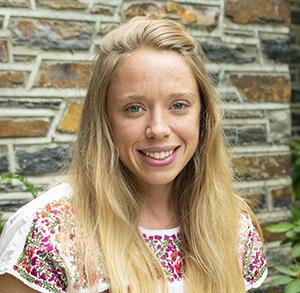
Melissa Duvall
Marine Science and Conservation
Katherine Goodman Stern Fellowship
The Graduate School Administrative Internship for UCEM
I am a Ph.D. candidate within the Nicholas School of the Environment and the Division of Marine Science and Conservation. I have spent most of my time as a doctoral student in residence at the Duke Marine Laboratory in Beaufort, NC, working with Dr. Jim Hench. My dissertation research is in the field of shallow-water physical oceanography and focuses on hydrodynamics within coral reef canopies. For my dissertation project, we conducted fieldwork on the coral reef surrounding the South Pacific island of Moorea, French Polynesia. From the measurements collected, I quantified properties of the topography and the flow in order to better understand the bottom friction exerted on the flow by the complex, multi-scale structure of the reef. This work will allow us to better model circulation in shallow systems, which is important for predicting impacts to coastal communities from storms and understanding biogeochemical processes that determine reef health and resilience.
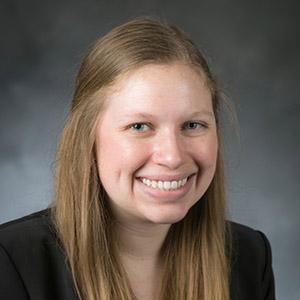
C.J. Enloe
Romance Studies
Dissertation Research Travel Award: International
My dissertation research centers around popular women’s magazines published during Francisco Franco’s dictatorship in Spain (1939-75). Specifically, I analyze the messages these magazines conveyed to their readers regarding women’s economic roles within Spanish society. Franco’s regime embraced conservative values and sought to limit women’s societal roles to those of housewife and mother by placing legal restrictions on women’s work and providing monetary incentives for women to stay at home. While popular media such as magazines were often used as a strategic tool to reinforce the regime’s stereotyped view of women as “domestic angels,” this was not always the case. In fact, magazines often conveyed surprisingly contradictory messages. Readers were told that they should aspire to be perfect housewives, but were shown examples of women who worked and even held leadership positions. They were taught to scrimp and save to keep their families afloat, but were bombarded with advertisements for luxury beauty products. Furthermore, while these magazines have sometimes been viewed as indoctrinating propaganda, many magazines included advice columns in which readers shared their stories and struggles, often coming into conflict with the editors’ moralizing advice. My work takes a closer look at these magazines in an effort to demonstrate that their messages to readers regarding their economic roles were significantly more nuanced than has previously been acknowledged.
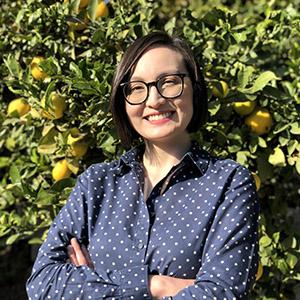
Nicole Gaglia
Art, Art History and Visual Studies
The Graduate School Administrative Internship
My research project, titled “Visualizing Bodies: Public Health and the Medicalized Everyday in Modern Japan,” investigates how the visual culture of public health shaped discourses on hygiene, the body and sociality in modern Japan. In doing so, I identify objects, spaces, and images as agents imbricated in the construction of a medicalized everyday—a scientific rationalization of everyday life rooted in the body. I examine the variety of media active within four distinct spheres of communication—hygiene exhibitions, “enlightenment” posters, prints of the active female body, and modernist painting—that recorded the visual rhetoric of public health as it circulated through public space. These objects demonstrate the malleability of modern public health discourse within the public sphere, and the active role of images in constructing knowledge. Through the analysis of these images, I argue that the visuality of public health does not operate as a unidirectional transmission of state ideology, but that these images form sites of translation and appropriation where public agency is activated. My investigation into the visuality of public health considers both how medical knowledge was imaged for public consumption, and the effects of these images on shaping public health discourse.
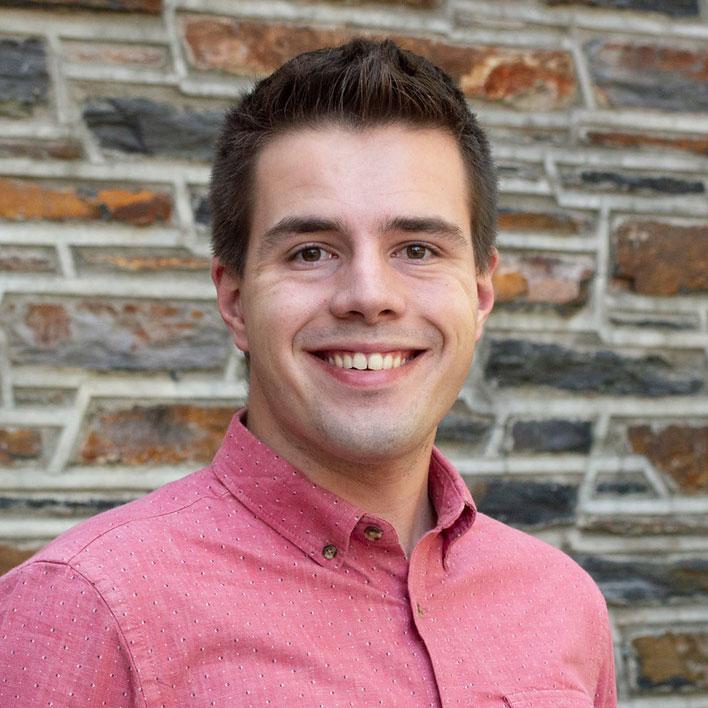
Raphael Geddert
Cognitive Neuroscience
I am a first-year doctoral student in the Cognitive Neuroscience Admitting Program in the Center for Cognitive Neuroscience. I am broadly interested in how the brain utilizes contextual information to dynamically alter cognitive functions to meet the specific needs of a situation, specifically in the realms of attention, cognitive control, cognitive flexibility, and memory. One line of work I am exploring is the neural basis of how social contextual information can modulate cognitive flexibility, utilizing both functional magnetic resonance imaging and transcranial magnetic stimulation to identify and explore how specific brain regions are recruited to modulate cognitive flexibility.
Jacqueline Gerson
Ecology
Dissertation Research Travel Award: International
My research investigates the fate of mercury from artisanal gold mining in the Peruvian Amazon. Mercury is a potent neurotoxin that can impact people and biota when it bioaccumulates in the food chain. In the process of artisanal gold mining, miners use mercury to extract gold from sediments. This mercury is then burned off into the atmosphere, where it can travel far from its source, and represents the primary source of global mercury emissions. In my study, I seek to understand how the mercury re-enters the terrestrial and aquatic ecosystems. I also examine where we see hotspots for the transformation of this mercury into the more toxic and bioavailable form of methylmercury. To answer these questions, I collect river water, river sediment, precipitation, leaf, and soil samples to analyze for total mercury and methylmercury concentrations.
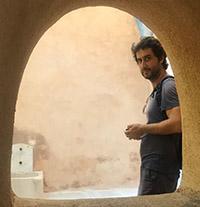
Nikos Gkiokas
Art, Art History and Visual Studies
James B. Duke International Research Travel Fellowship
Summer Research Fellowship for Third Year Ph.D. Students and Beyond
My work at Duke examines the materiality and meanings of Archaic Greek kouroi—nude male statues made of marble—within the context of ancient sanctuaries (7th c. BCE—4th c. CE). The kouros-type statue first emerged in the second half of the 7th c. BCE and its production ended around 500 BCE, but the statues continued to be used within sanctuaries in various ways throughout antiquity. Typically, the statues are life-sized, although several verge on the colossal. Among the 400 kouroi that have been discovered, 70% were votive dedications (i.e., gifts to the gods). This suggests that sanctuaries were the primary arenas in which kouroi operated. Their identification—who they might represent—is, however, still a matter of contention: are they gods, mythical ancestors, petitioners of the divine? Also, the meanings attached to them change over time, from their production and initial display in sanctuaries, over their later use-life, through to their final deposition in an archaeological context. My aim is to model the physical, ritual, and depositional contexts in which they were found in order to understand the social, economic, religious, and political frameworks in which they were used. My project addresses four main areas of scholarship (archaeology, art history, history and religious studies) and is structured around the sanctuaries of Apollo Ptoos in Boeotia; of Athena and Poseidon at Sounion in Attica; and of Apollo on the island of Despotiko.
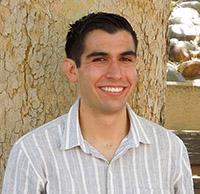
Biomedical Engineering
I am a first-year Ph.D. student in biomedical engineering, with a focus in biomaterials, and am co-advised by Drs. Shyni Varghese and Stefan Zauscher. For my research, I will be looking into the lubrication of articular cartilage in the knee. Within the knee joint, there is viscous synovial fluid that helps reduce the forces on cartilage and helps maintain long-term health of cartilage. I will study what molecules in the synovial fluid may reduce the degradation of cartilage. By quantifying the solid-like and liquid-like properties of various components of synovial fluid, I will look to find an optimal combination of molecules to include in future studies of cartilage lubrication. During my graduate studies at Duke, I plan to gain experience with teaching and outreach to improve my involvement in science education.
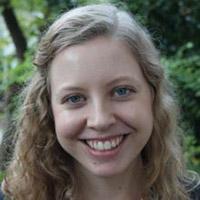
Meredith Graham
Music
Bass Instructional Fellowship: Instructor of Record
I am a fifth-year student in the music department at Duke (musicology area), interested in British choral music from the 20th century. I study how Ralph Vaughan Williams, Herbert Howells, Grace Williams, and Elizabeth Maconchy included texts from multiple sources in different languages to their music, forming choral anthologies.
I am also interested in learning about digital humanities methodologies and practices while at Duke. I have held many positions at Digital Scholarship Services, including the Harsha Murthy Fellowship in Digital Scholarship. This year I am serving as the project manager for Project Vox, a digital humanities project dedicated to introducing women into the canon of philosophy.
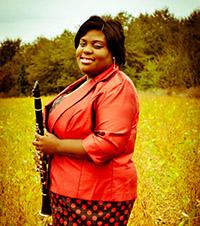
Brittany Green
Music
My research explores the works of experimental and avant-garde American music and its role in defining identity and creating visceral, community-building musical experiences. My music draws from this canon while exploring the intersection of movement, text, sound, and technology, presenting identity and community through an immersive and intimate lens. Gestural recognition technology and virtual reality platforms, as tools of music-making, are at the heart of this intersection, challenging preconceived notions of how sound, movement, and text interact with one another.
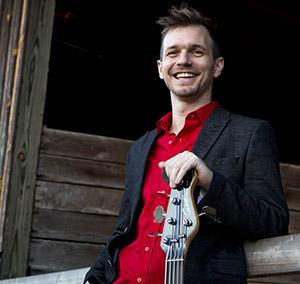
Jonathan Henderson
Music
James B. Duke International Research Travel Fellowship
Summer Research Fellowship for Third-Year Ph.D. Students and Beyond
My research examines representations of Mande music and musicians as constructed and circulated by the international recording industry. Mande cultural groups descending from the Mali empire are spread throughout Mali, Senegal, Gambia as well as parts of Mauritania, Niger, Guinea, and Guinea-Bissau. Hereditary musicians known as jeliw (or griots in French) play a vital role within Mande societies, but the impact of these musicians, and the figure of the griot more broadly, has become far-reaching outside of West Africa over the past half-century. Taking an ethnographic and archival approach, I trace the reverberations of Mande music recordings produced at the fraught and dynamic interface between West African musicians, a group of London-based record producers, and a global music industry that enables the flow of music, musicians and meaning through the black Atlantic. My study advances scholarship of Mande music beyond its relationship to the continent by tracing the evolution of its meaning as sound recordings travel international routes of circulation. I seek to understand how processes of globalization are mediated by the music industry, and how the music industry comes to shape traditional musical practice on the global stage and back at home in the local setting.
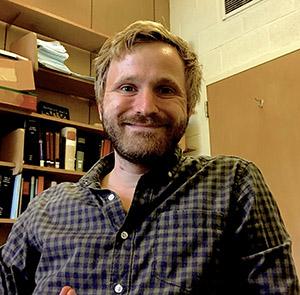
jeffrey hertel
German Studies (Carolina-Duke German Program)
Katherine Goodman Stern Dissertation Completion Fellowship
In between 1790 and 1848 in Germany and Austria, political debate in in its traditional forms (newspapers, journalism, etc.) was stifled by a rigid system of censorship that managed public opinion in order to maintain the status quo. While this was a fairly straightforward business for reporting on political events, censorship proved unequal to its own task when confronted with satiric theater. Here, authors with opinions different from those of the status quo could invent whole new worlds wherein they could ridicule the shortcomings of the social order in which they lived.
Essentially, what my dissertation explores is the history of how a series of dramatists tried to save the notion of free speech by hiding it in comedy. To further protect the nature of what they were doing, authors would frequently displace the setting of their dramas. This displacement could be in history (i.e., setting a work about religious freedom in the 1700s as opposed to the 1840s) or in fantasy. Instead of a recognizable German place, authors might choose a faraway setting like Greece or populate the stage with fairies and goblins. All of this displacement gave authors a modicum of plausible deniability so that they could continue to comment on their contemporary world, obeying thereby the letter, but not necessarily the spirit of the censorship laws of the time.
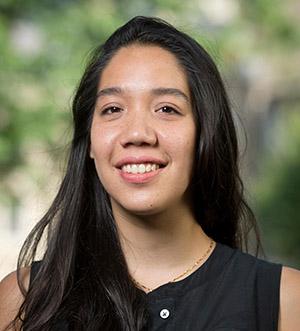
Ranae Jabri
Economics
Dissertation Research Travel Award: Domestic & Summer Research Fellowship for Third-Year Ph.D. Students and Beyond
Data-driven algorithms are increasingly used in a wide variety of life-changing contexts, from loan provision to the criminal justice system. I study the impacts of using and tradeoffs in data-driven algorithms and machine learning based tools. / In one paper, I evaluate the effects of place-based predictive policing on crime and other socioeconomic outcomes. Many police departments across the US use predictive policing tools to allocate patrol within cities. In another research paper, I study how algorithms maximize predictive power at the cost of group equity, specifically in recidivism risk assessment tools. Conventional algorithms include many input variables to maximize predictive power. In doing so, algorithms can include input variables -- like data on neighborhoods where defendants live -- that only marginally improve predictive power, but substantially introduce racial and socioeconomic inequity in risk scores that defendants receive.
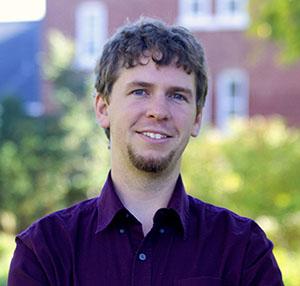
Ryan Juskus
Religious Studies
Dissertation Research Travel Award: Domestic
As a doctoral student in religion and ethics, I am studying the intersections of Christian faith and environmental action in the context of a political economy ordered to a large extent around the extraction, use, and waste of natural resources. What are the conditions and possibilities for living well and building a just common life with others in such a social and ecological context, and how are human relations to the natural world conceived of and acted on in relation to the divine? In addition to drawing on the archive of Christian texts and thought throughout history to respond to these questions, I also use qualitative research methods to attend to the speech and action of a small, faith-based creation care organization that developed and carries out citizen science projects in places affected by coal mining, burning, or waste. These are places where the incidence of human illness seems to be greater than in other places, but where no research on the possible associations between health and coal had previously been conducted. The group calls these projects "citizen science as restorative truth-telling," and they consider these projects to be a form of Christian witness to the God who loves creation. My research thus engages theoretical and practical matters at the intersection of science, religion, politics, and the environment.
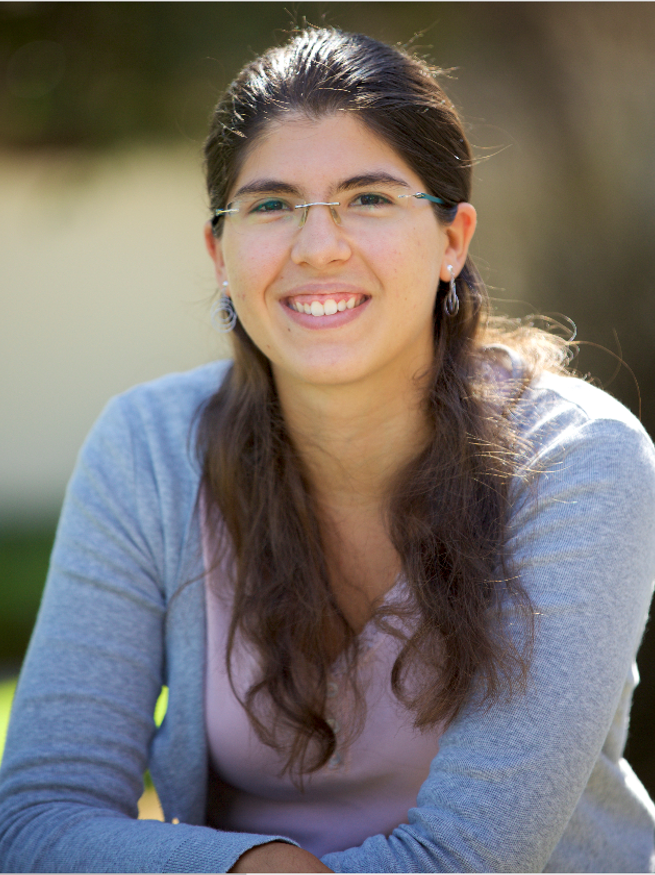
Nancy Kalaj
Molecular Cancer Biology
The lab I'm currently doing my first rotation in (Dr. Ann Marie Pendergast’s lab) focuses on the role of ABL kinases and related molecules in the context of lung and breast cancer. One exciting research avenue the lab is currently pursuing consists in gaining a better understanding of the molecular mechanisms underlying lung and breast cancer metastasis to the brain as doing so would give us the opportunity to develop new treatments. I'm personally focusing on a kinase belonging to the AMPK family called NUAK2, which has been shown to somehow be involved in the ABL-TAZ pathway activated in brain metastatic cells. Treating brain tumors is notoriously difficult since getting most drugs to cross the blood-brain barrier and accumulate in concentrations high enough to target tumor cells efficiently is very challenging. This is why targeting tumor cells through kinases in order to disrupt fundamental pathways leading to an increased growth and metastatic potential is a very interesting direction in cancer research.
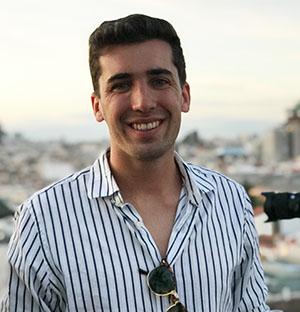
Matt Klauer
Pharmacology and Cancer Biology
I’m interested in studying the interactions between drugs and their receptors. G-protein coupled receptors (GPCRs) are the targets of the majority of drugs currently on the market. Therefore, improving our understanding of the drug-GPCR interaction is imperative to advancements in drug discovery and development. Duke has a fantastic program for GPCR research and I’m excited to utilize these resources as I pursue my Ph.D.
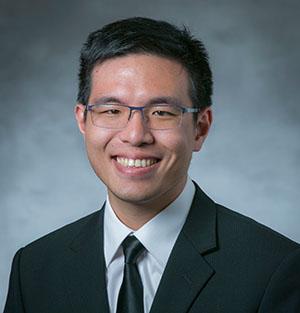
Computational Biology and Bioinformatics
My research interest lies in performing data analysis and development of computational tools to extract information from biological data and to solve biological problems. I have always wanted to conduct research that integrates biological experiments and computational analysis. Therefore, after graduating from Duke Master of Biostatistics (MB) program, I have continued to develop my research skills in the Duke Ph.D. program of Computational Biology and Bioinformatics.
During my study in the MB program, I was under the supervision of Dr. Cliburn Chan and focused on deep learning analysis for single-cell data. In the single-cell analysis project, the goal was to use deep learning to compare multiple groups of heterogenous mixtures among different samples from flow cytometry data. Previous studies have shown the distributions of cells in gene expression are different among samples with different phenotype such as disease status. To capture both marker intensities and cell distributions, we have been developing a new data transformation method that converts marker intensities of cells into images. Those images are then fed into our convolutional neural network to classify samples by clinical phenotype.
As a first-year Ph.D. student, I am rotating in Dr. Li Ma's lab and one of the main focuses in the lab is developing Bayesian models to analyze microbiome data. My current project is to optimize the model developed in the lab using graphical processing unit parallelization.

Ryan kozlowski
Physics
Bass Instructional Fellowship: Instructor of Record
My research focus is the study (via tabletop experiments) of stability and failure in granular materials, which are defined as collections of many rigid particles; examples include sand, rice, and even asteroids! Granular materials are ubiquitous in food production and transport, pharmaceuticals, textiles, and geophysical catastrophes like landslides and earthquakes, so understanding how they form stable structures and yield under applied loads is of utmost importance. Though a bulk granular medium consists of solid grains, it can behave as a liquid or a solid depending on a variety of parameters including the density of grains, inter-grain friction, and external stresses. My current goal is to enrich physicists' understanding of the dynamical response of a granular material to a single-grain intruder, or point-load, with a special focus on the transition between liquid and solid states in stick-slip and clogging dynamics. Stick-slip is characterized by a cycle of (a) loading of stress in the solid-like material and (b) rapid release of stress accompanied by liquid-like rearrangements of grains. Clogging is a phenomenon in which grains flowing (as a liquid) through a restricted aperture can randomly form stable arches that prevent further flow (as a solid). I have compared and quantified these dynamics in a point-load granular system; now I am exploring the causes of these dynamics on the microscopic level, examining both grain rearrangements and the forces between grains.
Jessica LaLonde
Mechanical Engineering and Materials Science
My research interests are primarily based on the intersection of materials science, biology, and physics. I have previously conducted research in polymer thin films for optical metamaterials and biomimetic soft electronic materials for adaptive camouflage applications. As a first-year Ph.D. student in the biomaterials and tissue engineering laboratory of Dr. Jennifer West, my current training and research focus is primarily in the design, synthesis, and application of biofunctional materials within hydrogels.
Because my research focus is particularly centered on hydrogels and soft biomimetic materials, I am looking forward to conducting preliminary experiments in two main areas: (1) using hydrogels for stimuli responsive drug delivery and (2) novel peptide engineering with an emphasis on targeted enzyme interactions. I hope to focus specifically on the fundamental interactions between the biological, chemical, and physical forces within these systems. I aim to also continue my internship research at Los Alamos National Laboratory to investigate the materials properties of algal biofuels and other biologically-derived alternative energy sources using these same principles.
These research interests will develop and expand into a final dissertation research project by exploring the various aspects of hydrogel research and pursue collaborations across the many research institutes and departments here at Duke University.
Zachary Levine
Cultural Anthropology
Dissertation Research Travel Award: International
My research concerns incarceration, ayahuasca, and spirit-mediumship in Porto Velho, capital of the Brazilian-Amazônian state of Rondônia. The NGO Acuda was founded in 2001, and amidst major prison massacres, as a physical- and psycho-therapeutic project of healing men from the harms of incarceration—working daily with ayurvedic massage, reiki, Gestalt psychology, and yoga—its in-prison work increasingly extends outward toward Afro-Amazônian religious publics, including Umbanda and the “ayahuasca religions." Across its spiritual endeavors, the NGO espouses the (for many) unthinkable concept that the criminal’s body is a healing agent; men who have committed crimes are trained at Acuda the way mediums are trained in Brazilian Espirist traditions, channeling somatic and energetic healing (cura) for people with whom their spiritual fate is entangled. My research has evolved to ask how the concept and practice of "mediumship" in religious healing publics is enlisted in the project of “re-mediating” men in Rondônia’s state prisons.
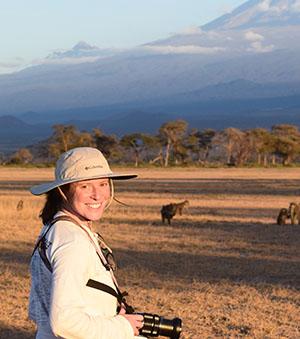
Emily Levy
Biology
Dissertation Research Travel Award: International
In several species, including humans, experiencing adversity early in life (early adversity) can dramatically reduce adult lifespan. We know little, however, about what is mediating the effect of early adversity on lifespan. I'm testing whether poor immune function and smaller body size act as two such mediators. Specifically, I'm testing whether (1) higher early adversity is associated with poor immune function, and (2) higher early adversity is associated with reduced growth and smaller adult body size. I'm testing these relationships in a wild baboon population that has been studied longitudinally since the 1970’s by the Amboseli Baboon Research Project. While baboon social groups have strong parallels to human society, they lack the typical confounds of human studies (e.g., unequal access to healthcare). Further, prior work in this population shows that baboons who experienced more early adversity experience both shorter adult lifespans and less offspring survival than baboons who didn't experience early adversity. I am measuring immune function by looking at wound healing patterns. I am measuring body size via parallel-laser photogrammetry, in which photographs of baboons include two lasers projected into the baboon a known distance apart, creating a within-photo scale. With help from the research team, I collect these data on baboons near Amboseli National Park, Kenya.
Alexis Ligon
Cultural Anthropology
During my time at Duke, I plan to explore issues of racial discrimination and feelings of exclusion in American symphonic orchestras. Over the past 25 years, the participation of African Americans in major classical orchestras has only increased marginally, while other racial groups have experienced significant increases in representation in this musical arena. I hope to explore the intersection of European and African American musical histories, economic barriers, hiring practices in orchestras, admissions offers for prestigious musical schools, and other factors that might discourage Black musicians from pursuing a career as a professional orchestral musician. While at Duke, I hope to bolster my background in music by exploring performance studies, sound studies, and the relationships between large systems of power and musical and expressive art forms.
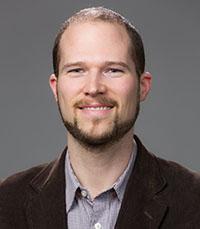
Classical Studies
Myra and William Waldo Boone Fellowship
The imperial Roman army has traditionally been viewed as a disciplined fighting machine segregated from the enfeebling attachments of civilian life, including slave-ownership. Arguing from previously undervalued non-literary evidence including inscriptions and papyri, my dissertation contends that the institution of slavery permeated the Roman military during the principate (27 BCE to 284 CE). My claim draws support, first, from my quantitative analysis of a database of 965 Latin and Greek inscriptions mentioning slaves and ex-slaves in military communities and, second, from a qualitative investigation of documentary and material evidence focusing on specific aspects of slave life in military bases, such as slave sales, slave manumission, and sexual exploitation.
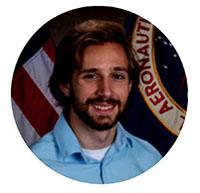
Ethan LoCicero
Mechanical Engineering and Materials Science
I study control theory, particularly input-output (I/O) stability theory. The mathematical tools derived from I/O stability theory allow engineers to analyze how systems with uncertainty respond to disturbances. For example, many high-performance control schemes are stable if the plant parameters are very accurately known, but if any parameter has a large degree of uncertainty, the controller may instead destabilize the system. Using I/O stability theory, constraints can be added to the design process to design less aggressive controllers that can stabilize the system under much broader parameter uncertainties. This property, robustness, is especially useful for applications where system identification is limited or reduced-order models are necessary. One of the most common I/O stability criteria is passivity, which roughly means dissipation of energy. Intuitively, if a system dissipates energy, it should stabilize. While passivity has many properties that make it broadly applicable, it is a very limiting condition. In fact, it has been shown that passivity and other I/O stability criteria are special cases of Conic Sector Theorem (CST). The broader framework of CST allows for higher performance designs. However, for large systems, CST can be much more difficult to apply to very large systems than passivity. My research focuses on exploiting sparse matrix structures to make the more general conic stability conditions possible in application.
Ian Lock
Molecular Cancer Biology
During my post-baccalaureate position in research, I came to recognize how the graduate experience could confer a vast repertoire of skills and tools to be utilized in a variety of future careers. Some of these skills could be conferred by a degree from another institution, but no graduate program allowed the freedom for the exploration of diverse careers that I have already experienced here at Duke. In my time at Duke, I would like to execute rigorous research and take policy classes to become established as an informed advocate for science and the policies that dictate how science can be expanded and propagated.
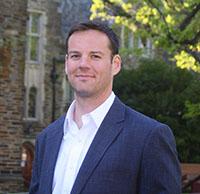
Sean Lonnquist
Environment
Aleane Webb Dissertation Research Fellowship
The goal of my research is to better understand how individuals living in communities affected by hydraulic fracturing (“fracking”) view both the regulations governing shale gas development, and the legal avenues available in the event of harm. That is, I am investigating whether people consider the rules governing fracking are sufficient to protect them, and whether they consider the legal system is adequate to compensate them, should they be harmed by fracking activities. Given the highly controversial nature of fracking, the competing narratives can obscure how individuals directly impacted by it perceive its riskiness. To gain a better understanding of individuals’ experiences and perceptions, I conducted interviews with people who live in communities affected by fracking. Interviewees were encouraged to discuss at length their experiences with fracking, as well as their opinions about state regulations and the legal system. Having analyzed their responses, I am now developing potential solutions to address some of the shortcomings in the relevant legal and regulatory frameworks.
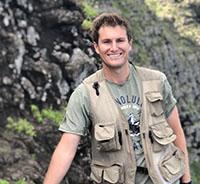
Alex Loomis
Biology
Dissertation Research Travel Award: Domestic
Summer Research Fellowship for Third-Year Ph.D. Students and Beyond
My research examines the ways invasive plants and herbivores, as well as climate and native insect pollinators, impact the growth, survival, and reproduction of native plant populations. My research was performed in Hawaii, where invasive species are ubiquitous and virtually every native plant population is threatened. Invasive species threaten native plant populations worldwide in many ways. Controlling the threats of invasive species is often the primary concern in managing and restoring native plant populations and ecosystems. However, the effects of different invaders can be both negative and positive—it is possible that some invasive species will interact with each other and native plants in ways that diminish the threat or even benefit native plant populations. I study how groups of invasive species interact with wild populations of an insect-pollinated species and a wind-pollinated species in the genus Schiedea, found only in Hawaii. I have also conducted restoration plantings of two critically endangered species in the genus, acting as additional research sites and also creating a conservation safety net for two of the world’s rarest plant species. I use population modeling to project the impacts of climate and invasive and native species on native plant populations into the future.
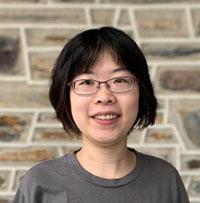
Lan Luo
Neurobiology
I'm a first-year student in the Neurobiology Graduate Training Program going through my rotations. My research in the first rotation lab aims to model how strategy is represented in the firing of neurons in the prefrontal cortex (PFC), an essential part of the brain regulating strategic thinking and higher cognition. By analyzing electrophysiological data recorded when monkeys are playing a real-time competitive game and fitting it to Gaussian process models, we hope to better understand whether and why some neurons may display distinct firing patterns under certain game dynamics and complex strategies.

Anyi Ma
Business Administration
One of the most important social issues today is the under-representation of gender and racial minorities in the highest echelons of corporate leadership. Why are there so few women leaders, and what can we do to improve the situation? My research focuses on one contributor of gender inequality at the workplace – people’s perceptions of agentic women. Agentic qualities (e.g., being aggressive, competent, ambitious) are perceived as fundamental requirements for leadership success. However, findings in this body of research that examines agentic bias represents a paradox for women leaders—women leaders can both be rewarded and penalized when they are perceived as agentic. I propose that this ambiguity may stem from the fact that there is a lack of consensus regarding the definition of agency. These definitional issues are in turn reflected in the exceptionally varied and conflicting ways in which agency has been measured. To clarify the agency construct, I developed a new Motivation-Influence-Ability model of agency that captures the multifaceted ways in which agency has been measured in the past 44 years. The MIA model of agency reconciles contradictory findings by showing that women can be penalized or rewarded depending on the type of agency they are perceived to possess. Women are perceived as less effective than men when they are perceived as dominant and more effective than men when they are perceived as competent, self-assured, independent, and hardworking.

Mathematics
Myra and William Waldo Boone Fellowship
My research program over the past two years has consisted of extracting valuable information from biomedical time series such as the electrocardiogram (ECG). I use mathematical tools such as non-linear time-frequency analysis and manifold learning, a set of algorithms which can understand the "shape" of large data sets. The goal of my work is to assist clinicians with medical decision-making by providing from vital signs as much information as possible in the most intuitive way possible. Inevitably, I am often working with data sets of biomedical time series which are large because of the number of subjects in the database, the number of channels associated with each subject, and the long-term nature and high resolution of those time series. As a mathematician, I am not just interested in the application of existing approaches to information extraction and purification, but also in the development of more effective such techniques. My plans for the next year include: the development of a mathematical framework for several pesky algorithms which currently demonstrate high effectiveness but lack such a foundation explaining that effectiveness, observing and implementing the application of modern mathematical signal processing techniques in various new domains, and the development of new signal processing and large-scale data analysis tools which would have advanced mathematical origins.
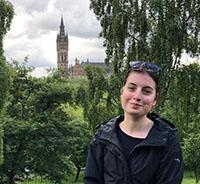
Alexandra Masgras
Art, Art History and Visual Studies
James B. Duke Fellowship
University Scholars Fellowship
My research examines the interrelationship between architecture and social engineering during the 1930’s and early 1940’s in Romania, with the aim of evaluating the function of the built environment in implementing racist policies. The fundamental premise of this study is that architects and urban planners played an instrumental role in actualizing the biopolitical state envisaged by prominent eugenicists. My research investigates several building types dedicated to curative and preventive medicine, such as hospitals, tuberculosis sanatoria, urban and rural health centers, and public baths. In addition, I examine urban and rural plans informed by public health guidelines and international research in the fields of hygiene and sanitation. I seek to assess the extent to which social/racial hygiene legislation was enforced and to identify what ethnic and socioeconomic categories were affected by such policies. By investigating the roles played by political leaders, medical professionals, sociologists, architects and planners in Romania’s biopolitical project, I hope to highlight the myriad power relations whereby the modern mechanism of social control was articulated.
Rachel Meade
Genetics and Genomics
As a first-year student, I am pursuing rotations in labs associated with the University Program in Genetics and Genomics. My previous work has dealt primarily with breast and prostate tumor inflammatory signaling and with genes that affect Salmonella susceptibility. Currently, I plan to engage in projects that address host-pathogen interactions from a genetic perspective. However, my interests remain quite broad, including human disease and chromosomal abnormalities.
Alexander Mestre
Biochemistry
I am in the biochemistry department, and I am currently rotating through research laboratories. Through my past research experience, I have developed a passion for integrated science that blends structural biology, Cryo EM in particular, and computational tools as an approach to mechanistic biochemistry. My goal is to use my Duke education to reach a level of proficiency that allows me to use big data to guide structural and structural dynamic studies of biological molecules and then validate the mechanistic hypotheses gathered, using in vivo systems.
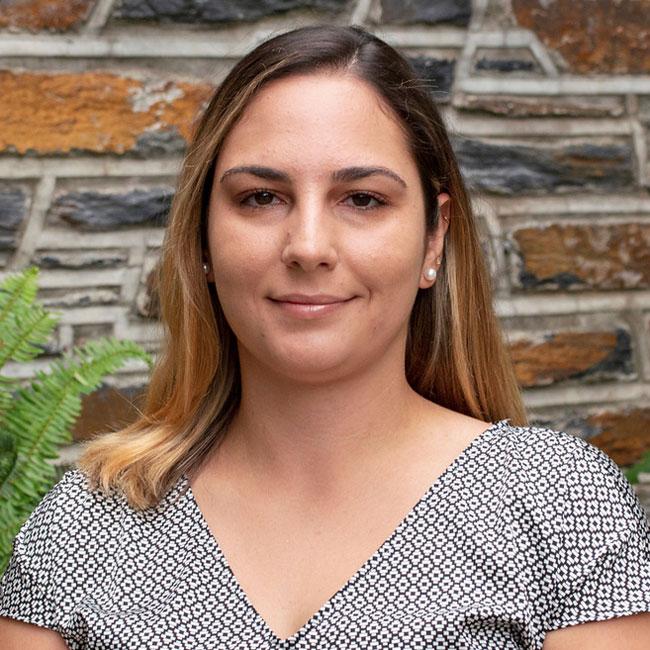
Kay Palopoli
Biomedical Engineering
E. Bayard Halsted Scholarship in Science, History, and Journalism
My research focuses on using innovative engineering technology to study the brain after ischemic stroke. During ischemic stroke, blood flow to the brain is blocked (usually due to a blood clot in an artery), resulting in death of brain tissue. Well-established, first-line interventions include surgical approaches to remove such clots. However, even after blood flow is restored to the brain, there is still risk of further tissue damage for at least another week. Unfortunately, there are no second-line interventions to prevent secondary damage during this critical week. This gap in the medical field results in increased impairments in patients and reduced quality of life. My research aims to inform targeted protocols for stroke patients during that critical week. Spreading depolarizations are large electrical signals that occur on the surface of the brain after stroke and are thought to contribute to secondary damage. I am using high-density micro-electrocorticography technology developed in my lab to study these signals in a rat model. The technology I am using is innovative because it allows, for the first time, real-time tracking of stroke dynamics in awake, freely behaving animals. With my approach, I hope to elucidate the role of spreading depolarizations in secondary brain damage following ischemic stroke. The clinical implication of my research is to develop better second-line interventions for patients, ultimately improving their long-term quality of life.
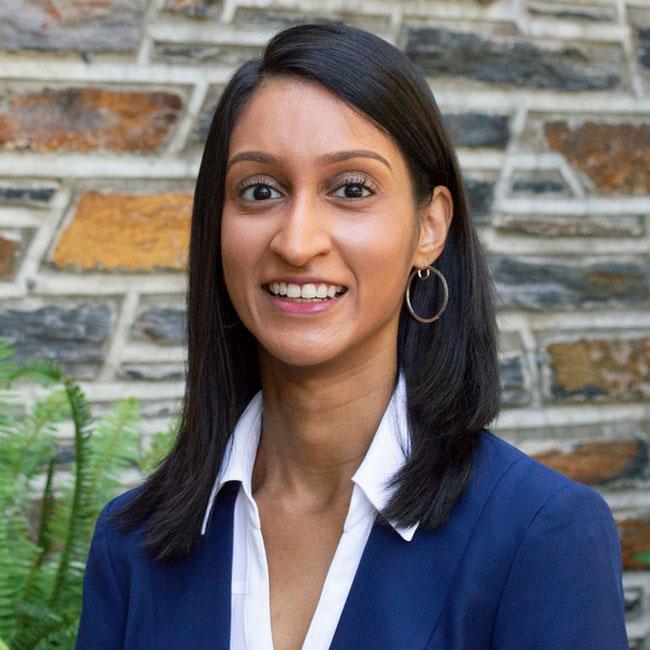
Sasha Panaram
English
Dissertation Research Travel Award: Domestic
My dissertation explores critical and creative renderings of the Middle Passage by black women artists in black diasporic literature and culture. I argue that by attending to how black women novelists, poets, religious figures, and literary critics from disparate parts of the world – Barbados, Tobago, Canada, and the United States—reinscribe the Middle Passage in their works, they not only offer descriptive accounts of this crossing, but also develop a more expansive language to describe the Middle Passage by illuminating the movements that emerge in the wake of this forced migration. Drawing on literary studies, performance studies, and geography studies, I show how these writers develop a more capacious language for describing the Middle Passage – that which has no beginning, middle, or end; that which is not confined to a narrow strait but whose nomenclature suggests otherwise.
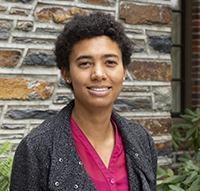
Renata Poulton Kamakura
Ecology
Dean's Graduate Fellowship
University Scholars Fellowship
I am broadly interested in how humans can live responsibly in a changing and dynamic environment. I will look at this question by modeling complex systems that change over both time and space (and are doing so at increasing rates due to climate change) and see how different human land uses and approaches impact those systems. I hope to use statistical models paired with field work, remote sensing, and extensive collaboration. I have mostly studied communities of land plants, but I hope to expand my knowledge while at Duke. I may end up working more at the interface between terrestrial and aquatic or marine systems.
Choosing how we as humans can live responsibly on our planet is complicated, and should consider social, economic, cultural, and political, as well as ecological factors. I aim to collaborate with others to figure out how we can equitably support human populations and their needs while also supporting other species on this planet with us. My goal is to give us a better understanding of the ecological impacts of our actions so we can make well-informed decisions going forward.
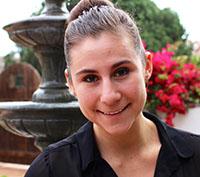
Anastasia Quintana
Marine Science and Conservation
Anne Firor Scott Public Scholars Fellowship
Bass Instructional Fellowship: Teaching Assistant
When many people are using a single resource, is the "tragedy of the commons" inevitable? No—and we can learn a lot from successful fishing communities.
My research contributes to a large body of work, called common-pool resource theory, that predicts when fallible human beings are able to work together to make rules that sustain their natural resources. It turns out, there are systematic patterns of successful collective action. This collective action (i.e., self-governance) is especially important in places where there is not a strong central government, like in Mexican small-scale fisheries. My research examines what kinds of policies encourage fishers to organize to sustainably manage their fisheries, rather than overfish. Some central questions of my work are, When is natural resource management empowering rather than paternalistic? Might fishers be the most important proponents of marine conservation? What can conservationists and policy makers concerned with broader environmental questions learn from small-scale fisheries?
I mostly work in the Gulf of California, Mexico, but also have projects in Quintana Roo, Mexico, and at a global scale. I partner with Mexican non-governmental organizations (Niparajá and COBI) who have long-term relationships with the fishing communities I study. I use a mix of ethnographic methods and surveys and present my results in the voices of my participants. You can read more about my research and teaching at www.anastasiaquintana.com.
History
I graduated with an A.B. degree in History from Princeton University in 2017. My senior thesis focused on Princeton University’s connection to slavery. I am excited to further this research while at Duke. As a first-year Ph.D. candidate in the history department, I am focused on the history of slavery and its connections to colleges and universities. This work involves tracing how these institutions tried to answer “the slavery question,” and how such answers manifested themselves into tangible actions to further (or frustrate) the slave trade.
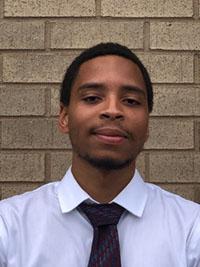
Computational Biology and Bioinformatics
My main research interests lie in using image analysis and machine learning to process, analyze, and classify images, or regions of images, obtained from biology experiments. Currently, I am doing a rotation, as a first-year student in the Computational Biology and Bioinformatics Ph.D. program, with Dr. Blanche Capel. Our lab studies the mechanisms behind sex determination and the gonad, which is an organ present in the developing fetus of animals that either becomes the primary male or female reproductive organs, and plays a critical role in sex determination.
My role in Dr. Capel's lab is to develop software that enables interactive image analysis of images taken by our lab. This software is based around a user interface that allows users to draw and select regions of interest in images, then calculate various measurements from selected regions. I also plan to work on a machine learning-based tool for automatically identifying, or segmenting, the gonad in images. This will ultimately make it easier to obtain and analyze characteristics of the gonad and the genes it expresses, over different time points and in different regions of the gonad.

Biomedical Engineering
I am interested in making epigenetic modifications to DNA in order to learn about the mechanisms of gene regulation and to manipulate gene expression in cells and organisms. Epigenetic marks, which are features on DNA and chromatin (other than DNA sequence alone) that affect gene function, are instrumental in controlling gene expression. Aberrant epigenetic patterns are implicated in a multitude of diseased states in humans and animals, but the mechanisms by which we can stably alter these patterns are largely unknown. By using bio-tools that make targeted epigenetic modifications, we can study the effects of these modifications on gene expression and function and on the resultant phenotypes.
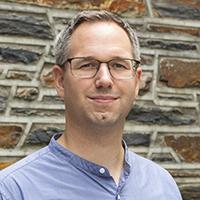
Christoph Schmitz
German Studies (Carolina-Duke German Program)
Dissertation Research Travel Award: Domestic
My work explores how German novels of the post-war era tell stories about a society that is shaped by mass media. Film and audio technologies create the illusion that the distant bodies, their movements and voices, are close to us. They whisper in our ears through multiple channels--from cinema and radio to streaming services and podcasts. These effects can never be copied or imitated by the letters of our alphabet. Novels can't move, and they don't sound. Yet they don't shy away from telling the stories that emerge from such a media landscape. With particular interest in the literary representation of voices, my dissertation shows that recording devices appear in many novels as symbols of our social realities. From the loudspeakers and radio shows of National Socialism through the fragmented sound of the 1960’s to the never-ending calls of the cellphone age, recorded voices appear in these novels and illustrate authoritarian structures as well as disruptive resistance.
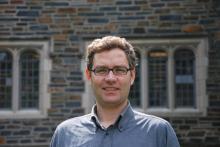
Filippo Screpanti
Romance Studies
Bass Digital Education Dissertation Completion Fellowship
What made the Romans turn out in big numbers to brutal gladiatorial games and triumphal parades? Why did they desire to watch gladiatorial games, wild beast hunts, chariot racing? These murderous games and processions were quintessentially Roman inventions and had a crucial importance for Roman society. This year, with the support from Anne T. and Robert Bass Digital Education Dissertation Completion Fellowship, I will develop and supervise the implementation of an innovative digital humanities pedagogy project to help undergraduate students at Duke answer these fascinating questions and share their findings through a virtual interactive map of Ancient Rome. This project is part of an undergraduate seminar at Duke University in Archeology and Visual and Media Studies titled “Roman Spectacle,” in collaboration with Professor Alicia Jimiènez in The Department of Classical Studies and Duke Learning Innovation. During the class, we will develop a digital geo-chronological platform for displaying the monuments that were linked to the spectacle in Ancient Rome, highlighting how they were connected and interacted with each other. While students will understand how the physical space of Ancient Rome structured representation of power in antiquity, they will also present their findings for a general audience through the digital platform accompanying the course.
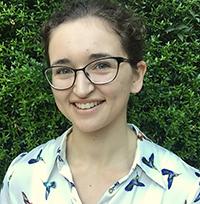
Adriana Stohn
Electrical and Computer Engineering
Dean's Graduate Fellowship, Sloan Scholarship
University Scholars Fellowship
A long standing challenge in optical engineering is the ability to image through a scattering medium. Think of frosted glass. When you try to look through frosted glass, objects on the other side appear to be blurry. The blurry appearance of the objects is caused by light scattering randomly out of its normal path to your eye as a result of the frosting of the glass. Similarly, there are many scenarios where the object we would like to image is occluded by another such scattering medium: imaging through fog, through the atmosphere, or even through a small layer of biological tissue. My research focuses on investigating how performing correlative mathematical operations on images of scattered light can permit imaging the object, as if the scattering medium were not there.
Brady Taylor
Electrical and Computer Engineering
I'm researching computer hardware implementations of AI algorithms in both digital and analog technologies. Specifically, I'm building circuits that interface with emerging technologies like memristors and spin-gates to create more efficient computing platforms for neural networks.
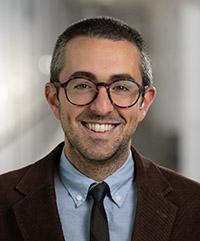
Jason Douglas Todd
Political Science
Aleane Webb Dissertation Research Fellowship
Dissertation Research Travel Award: Domestic
Each year, the U.S. Supreme Court hears around 85 cases, summarily deciding another 100 without oral argument. Inevitably, then, most case law is authored by lower court judges -- not the justices of the Supreme Court. My work reckons with this fact, investigating how the federal judicial hierarchy and the Court's case selection procedures interact to shape law in the United States. Because most lower court judges are not bound to respect each other's rulings, oftentimes the Court's most important decision concerns which lower court rulings to leave untouched. I argue that to evaluate the status quo at the agenda-setting stage requires more than simply determining agreement with the decision below, but rather assessing the full distribution of lower court judges' policy preferences, which will be etched into law should the Court deny review. Thanks to the Dissertation Research Travel Award, I was able to spend time at the Library of Congress digitizing internal court documents from the Papers of Justice Harry A. Blackmun. And thanks to the Aleane Webb Dissertation Research Fellowship, I was able to train a research assistant to code key variables from these digitized papers.
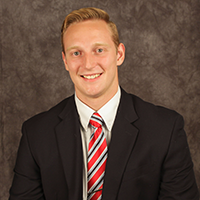
Billy Tomaszewski
Immunology
Paul and Lauren Ghaffari Graduate Fellowship
Gliobastoma Multiforme (GBM) is the most lethal and common primary brain tumor in adults. While immunotherapy has proven successful in other more immunogenic cancers, it has had only modest effects in GBM. Poor treatment responses in GBM are thought to be due largely to the immunosuppressive tumor microenvironment (TME). In the GBM TME, tumor associated macrophages (TAMs) appear to have a distinct tumor promoting role, and their accumulation correlates with tumor grade and poor prognostic outcomes. TAMs are the primary immune cell in GBM, comprising up to 30% of tumor mass and have been found to be one of the main drivers of immunosuppression. Specifically, TAMs release soluble factors that dampen the immune response, more specifically the cytotoxic T cell responses that are necessary for tumor clearance. Finding ways to polarize TAMs to an anti-tumor phenotype without reducing their migration into the TME would reduce the degree of immunosuppression as well as increase immunogenicity.
My research focuses on better understanding the contribution of TAMs in the GBM TME, as well as identifying potential therapeutic targets within TAMs with the goal of reducing immunosupression.
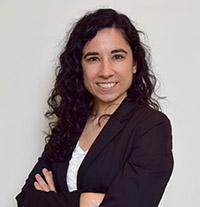
Romina Tome
Public Policy Studies
Brown-Nagin Graduate Fellowship
Summer Research Fellowship for Third-Year Ph.D. Students and Beyond
In my dissertation, I study the effect of policies and risk factors on maternal and child well-being. My research involves analysis of administrative data using quasi-experimental methods to causally estimate the effects of alcohol availability, violence, air pollution, and immigration enforcement on newborns and mothers’ health in Brazil and the United States. These articles not only emphasize the importance of prenatal experiences but also highlight the need to consider long-term effects on maternal and infant well-being in the cost-benefit analyses of policies and regulations.
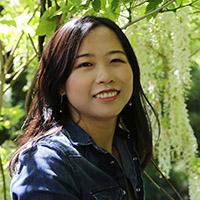
(Joy) Tianjiao Tong
Business Administration
Aleane Webb Dissertation Research Fellowship
Dissertation Research Travel Award: Domestic
My research focuses on the intersection of health economics and corporate finance. In the United States, firms play a crucial role in the health care system as they provide health insurance for nearly 60% of US adults. What is more, health care costs faced by employers tripled in the last twenty years. I am interested in the employers’ side of how dynamics in US health care systems influence firms’ real financial decisions and outcomes. My dissertation studies how changes in health care costs affect firms’ investment decisions. Using a unique dataset and external variations in health care costs, I find that firms reduce both capital expenditure on equipment and factories, as well as research and development expenses, in response to an increase in health care costs. More importantly, the effects exacerbate in smaller firms and firms employing more high-skill workers. This differential effect could have a profound impact on the long-term growth of the US, moving towards a knowledge-based economy. Besides, I am also interested in firms’ intangible assets, such as IP, human capital, and social capital. My research questions include but not limited to how firms allocate and finance these intangible assets and the frictions that incur in the process.
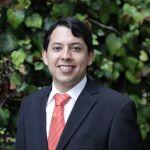
Edgar Virguez
Environment
Bass Instructional Fellowship: Digital Education Fellowship
After teaching in two different countries, three different institutions and for audiences of diverse backgrounds, I learned that disseminating knowledge is part of my essence. Being an active member of Duke University, whose mission calls me to be a life-long learner using the power of information technologies, demands me to become a next-generation pedagogue using state of the art tools; the Digital Education Fellowship (DEF) will help me achieve this objective.
As part of the DEF program, I will be conducting a course redesign of the Voices of the Environment (ENV 269 T-1 & SPAN 272 T-1) course aiming to include digital content as a main course component. This course is directed to undergrad students at Duke being one of the few service-learning courses taught in Spanish, offered under the Languages Across the Curriculum (CLAC) program. Using my dual identity as a faculty and as a student, I will implement digital technologies to the course with the objective of increasing active learning components and enhancing the participation of the community partner (a Colombian NGO working with children in vulnerable conditions).
Being a DEF fellow will have access to the resources I need to continue my development as a pedagogue and I would be able to fulfill with the intended mission of Anne T. and Robert. Bass when creating the Bass Program: enhancing the classroom experience of undergraduates at Duke.
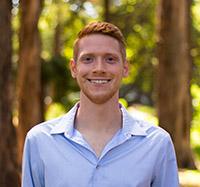
Tyler Waterman
Civil and Environmental Engineering
With a last name like "Waterman,” it is no surprise that I am studying water for my Ph.D. I am mostly interested in modeling how carbon, water, and energy is exchanged between the land and atmosphere. Accurately representing the role that land-atmosphere interactions play in our earth system is essential as we face uncertainty and unprecedented complexities due to human development and climate change. If we can understand and model how local, regional and global interactions function under these complexities, we can make better predictions of future impacts to food security, weather, water availability, and environmental stability in communities around the world. I am working as part of a project with others across the United States to better link together these interactions in key climate/earth system models. Currently, most models simulate the land and atmosphere as heterogeneous, that is that things such as soil, vegetation, and the slope of hills vary within a grid square used in the model. However, they do not bring this variability into the interaction between the two, instead representing the exchanges of water, energy, etc. from the land as one, homogenous value for a grid square up to 100 kilometers wide. I hope to help change that, and thereby improve accuracy in model predictions to help solve a variety of pressing problems facing our globe.
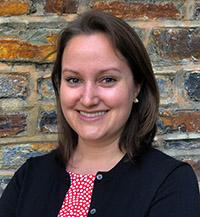
Jessica West
Sociology
Phillip Jackson Baugh Fellowship
I am a fifth-year Ph.D. candidate in Sociology, specializing in medical sociology and demography. Broadly speaking, I study disability from a social and behavioral perspective. More specifically, my dissertation focuses on hearing loss and how it impacts individuals and those close to them. One vein of my research examines the link between hearing and cognitive impairments. Recent studies have found mixed evidence for the link between hearing loss and cognitive decline, perhaps because most studies have used small, nonrepresentative, or cross-sectional samples with limited measures of hearing, cognition, and other variables. Using a large, nationally representative dataset of the United States, I am calculating how long the average person can expect to live with and without hearing and cognitive impairments. Another vein of my research examines the impact of one spouse’s hearing loss on the other spouse’s mental health. While there have been numerous studies using small, clinical, or cross-sectional samples to examine hearing loss within marriages, research using population-based, longitudinal data is limited and studies that do exist yield conflicting results (some find an association between hearing loss in one spouse and mental health in the other, while others do not find an association). I am evaluating this relationship over ten waves of data among 5,541 couples and also examining whether the relationship depends on the gender of the spouse without hearing loss.
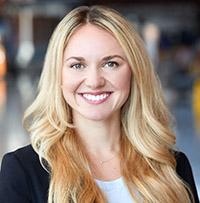
Amy Wisdom
Medical Scientist Training
Paul and Lauren Ghaffari Graduate Fellowship
Over half of all cancer patients receive radiation therapy, and it contributes to over 40% of cancer cures. Within the last decade, immune checkpoint blockade, a type of immunotherapy, has also become a pillar of cancer therapy. Preclinical studies with transplanted tumors demonstrating high cure rates with combined checkpoint blockade and radiotherapy have led to hundreds of clinical trials, but emerging results are disappointing. My thesis work seeks to understand mechanisms of tumor resistance to radiation and immunotherapy. Like other studies with tumors that do not develop in their native microenvironment under immunosurveillance, we find that transplanted tumors in syngeneic mice are cured by immune checkpoint blockade and radiotherapy. However, the identical treatment fails to achieve local control in autochthonous sarcomas from the same model system. Using whole exome sequencing, single cell analysis, and novel mouse models of cancer, my work compares treatment-sensitive (transplant) and treatment-resistant (primary) tumor models. We have generated a single cell atlas of tumor-infiltrating immune cells from allograft and primary tumors before and after radiation and anti-PD-1 immunotherapy, which reveals dramatic differences in their immune landscapes. By understanding mechanisms of primary tumor resistance, I aim to identify therapeutic targets that may be exploited to improve responses of cancer patients to immunotherapy and radiation.
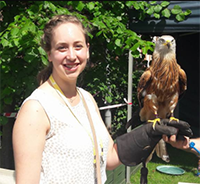
Meghan Woolley
History
Summer Research Fellowship for Third-Year Ph.D. Students and Beyond
Dissertation Research Travel Award: International
Twelfth-century England has long been studied as the origin of the Common Law, a development that is associated with the growth of government, rationality, and modernity. My dissertation approaches the developing institutions of the Common Law from a cultural perspective by analyzing the roles of emotions within legal practice and thought. Emotions were enormously important within medieval politics and culture, and the performance of emotions was essential to how aristocratic men and women formed social bonds and navigated the political sphere. As a court system and centralized legal norms developed, legal procedure often worked to exclude or minimize the role of emotions. However, emotions would still be a key part of how men and women conceived of their legal issues, and how they approached them through court. My dissertation brings together legal records with narrative texts, including chronicles, literature, and moral treatises, to understand how cultural norms about emotions affected how people moved through a changing legal system, and how a growing legal culture affected Anglo-Norman culture more broadly.
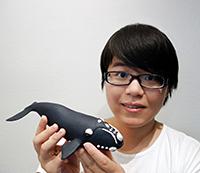
Chen-Yi Wu
Marine Science and Conservation
Dissertation Research Travel Award: Domestic
I am a Ph.D. candidate in the division of Marine Science and Conservation in the Nicholas School of the Environment. Being advised by Drs. Douglas Nowacek and Laurens Howle, I currently work on mechanisms of entanglement and its effects on kinematic and foraging of the North Atlantic right whale. By using a "reverse-engineering" computer solution, Virtual Whale Entanglement Simulator, I am able to test potential factors that may lead to large whale entanglement and simulate possible entanglement process with the computer solution. I am also interested in estimating energy expenditure of right whale with computational fluid dynamics model.
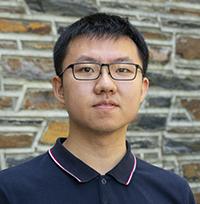
Yang Zhong
Electrical and Computer Engineering
I was working on electromagnetic compatibility and I am familiar with radio frequency measurements and the corresponding numerical simulations. Now, my research focuses on computational electromagnetic which cares more about the fundamental theories in electromagnetics. It helps me to better understand the mechanisms behind the simulations and measurements. The numerical methods I learned can not only solve Maxwell's equations but also works well in other domains, such as heat transfer (thermo-), water movement (hydro-), stress and strain (mechano-). In reality applications such as geophysics, nanophotonics and biomedical imaging, multiple physical domains need to be considered simultaneously. A lot of efforts in developing numerical methods are still needed to solve these multiscale and multiphysics problems.
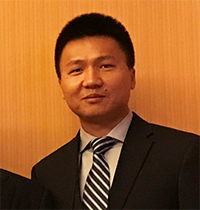
Haibei Zhu
Electrical and Computer Engineering
Bass Instructional Fellowship: Teaching Assistant
My research focuses on developing and comparing operator behavioral models in human-automation collaboration scenarios using machine learning techniques. Behavioral models are useful for investigating operators' strategies and behavior patterns in human supervisory control, which are common scenarios in human-automation collaborations. Comparisons between behavioral models can classify operators' strategies and quantitatively illustrate the potential impact of the changes in designs and operational scenarios. In my research, hidden Markov models have been widely utilized as descriptive models. I am interested in exploring the utilization of recurrent neural network as predictive models. I have worked on developing behavioral models to illustrate operators' strategies in conducting high-level tasks, including navigating vehicles and detecting potential hacking events, in a simulation-based platform. Currently, I am working on developing a comprehensive behavioral model comparison metric across various human supervisory control scenarios.